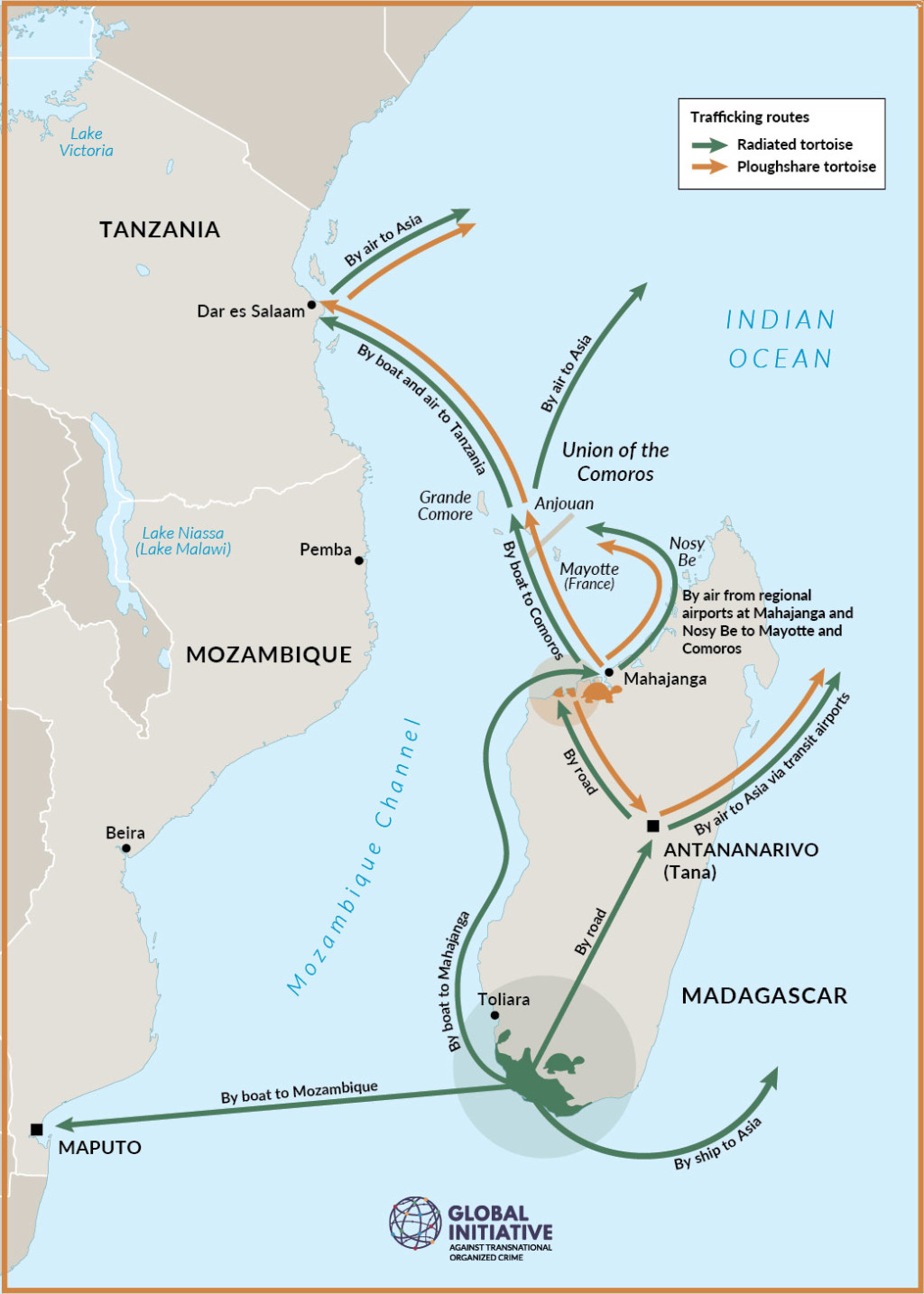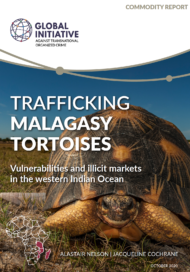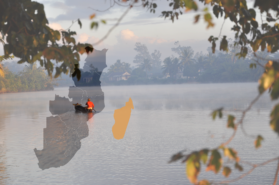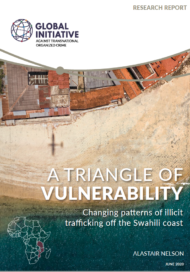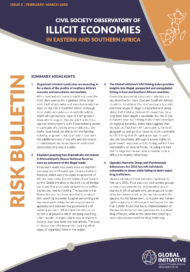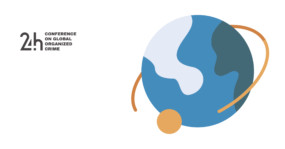Posted on 03 Dec 2020
While the trafficking of Madagascan tortoises may at first seem an obscure and inconsequential problem, this study shows that an extensive regional network of criminal and corrupt actors consistently undermine gains in rule of law, governance and democracy.
This report explores the trafficking methods and routes used, looking at possible overlaps with other illicit flows, and providing an analysis of the political economy of tortoise trafficking.
Several Malagasy animals are critically endangered; this report examines in detail, however, ploughshare and radiated tortoises. Decades of successful conservation efforts have been destroyed by the huge increase in poaching and trafficking of these reptiles over the last 20 years to supply the exotic pet trade.
This trade is closely linked with social media, and we look at the numerous online dimensions of the trade, considering how cyber-enabled tools can be used in directing efforts to mitigate the deleterious interplay between illegal wildlife trade and the internet.
As the global economy comes under pressure, livelihood prospects contract and traditional donor partners are forced to become more inward-looking – and more inward-spending. Meanwhile, vulnerable countries like Madagascar will be disproportionately affected by not only the long-term impact of COVID-19, but also by climate change. Factors like drought have impelled communities to consider involvement in activities such as the poaching of tortoises for survival.
While principally focused on a major biodiversity problem, this study also looks at the trafficking routes and where overlaps with other illicit flows occur regionally. It analyzes the political economy of tortoise trafficking and what this tells us about vulnerabilities for the trafficking of other illicit products in general.
